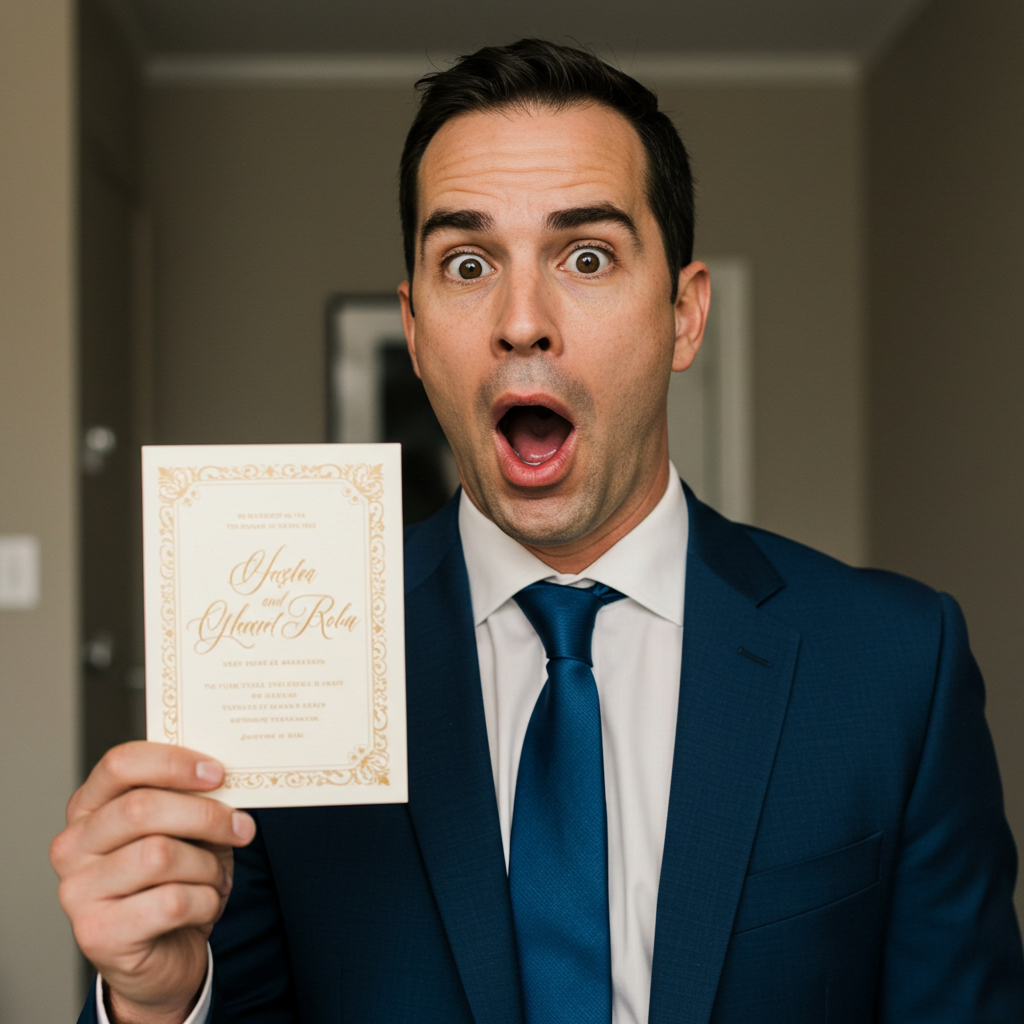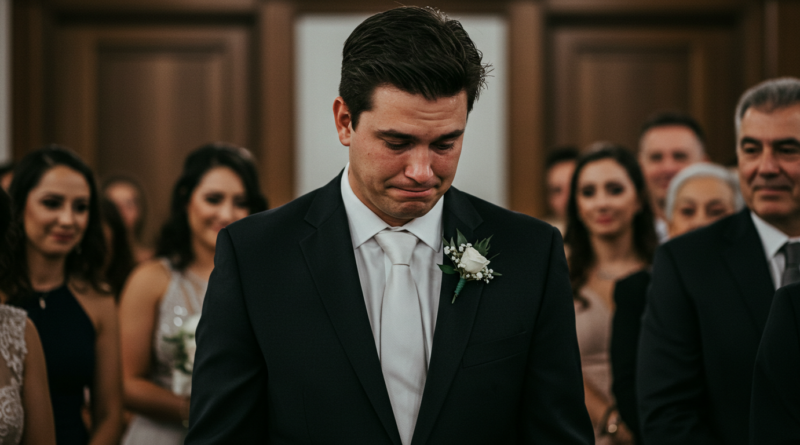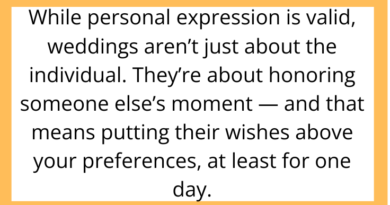AITAH for Refusing to Walk My Sister Down the Aisle After She Uninvited My Girlfriend?
Picture this: you’re asked to perform one of the most meaningful roles at your sister’s wedding, only to discover she’s deliberately excluded the person you love most. What started as family celebration planning has turned into a battlefield of loyalty, tradition, and personal values. This real-life drama unfolded when a brother was asked to walk his sister down the aisle, but she made one devastating condition that changed everything.
The situation began innocently enough. Sarah had always dreamed of having her older brother escort her down the aisle since their father passed away five years ago. It seemed like the perfect way to honor family tradition while creating a beautiful moment. However, when the guest list discussions began, things took an unexpected turn that would test the very foundation of their sibling relationship.
The Shocking Ultimatum That Changed Everything

The bomb dropped during what should have been a routine wedding planning conversation. Sarah sat her brother down and explained that while she wanted him to walk her down the aisle, there was one non-negotiable condition: his girlfriend of three years, Maria, was not welcome at the wedding. The reason? Sarah’s future mother-in-law had expressed “concerns” about Maria’s background and suggested it would be “more comfortable” for everyone if she wasn’t there.
This wasn’t just about a plus-one situation. Maria had been part of the family for years, attending every holiday gathering, birthday celebration, and family milestone. She had supported Sarah through her engagement planning and even helped her find her wedding dress. The sudden exclusion felt like a betrayal that cut deeper than any family argument they’d ever had.
The brother found himself caught between two impossible choices: honor his commitment to his sister on her special day, or stand by the woman he planned to propose to next month. Sarah insisted this was just about keeping peace with her new in-laws and maintaining family harmony. But her brother saw it differently – this was about accepting discrimination and abandoning someone who had become family in every way that mattered.
When Family Loyalty Meets Personal Principles

The confrontation that followed revealed deeper issues within the family dynamic. Sarah argued that one day shouldn’t matter so much, and that family should come first. She painted her brother as selfish for prioritizing his relationship over her wedding day happiness. The pressure intensified when other family members began choosing sides, with some supporting Sarah’s right to control her guest list and others appalled by the discriminatory undertones.
Maria, meanwhile, handled the situation with grace that impressed everyone except Sarah’s future in-laws. She offered to step back voluntarily to avoid family conflict, but her boyfriend refused to let her sacrifice her dignity for people who couldn’t accept her. This wasn’t about Maria being difficult or causing drama – she had always been welcoming and kind to everyone, including Sarah’s fiancé and his family.
The brother realized this moment would set a precedent for their entire future as a family. If he participated in Maria’s exclusion now, what message would that send about their relationship’s value? Would Maria always be the acceptable casualty whenever family politics got complicated? The weight of these questions made his decision feel much larger than just one wedding day.
The Decision That Split a Family Apart

After days of sleepless nights and difficult conversations, the brother made his choice. He called Sarah and delivered the news that would fracture their relationship: he would not be walking her down the aisle if Maria wasn’t welcome as his guest. The phone call that followed was devastating, filled with accusations, tears, and words that couldn’t be taken back.
Sarah called him selfish, claiming he was ruining her perfect day over someone who “wasn’t even family yet.” She accused him of choosing an outsider over his own sister and suggested that their father would be disappointed in his decision. The emotional manipulation was intense, but he stood firm in his conviction that accepting this exclusion would be wrong.
The ripple effects were immediate and painful. Family members were forced to take sides, holiday plans became awkward, and the siblings stopped speaking entirely. Sarah’s wedding proceeded with a family friend walking her down the aisle, but photos from the day showed the obvious absence of her brother. The celebration was tainted by the family drama, and several relatives questioned whether the conflict had been worth it.
The Aftermath and Long-term Consequences

Months later, the family remains divided. Some relatives have expressed regret about how the situation was handled, particularly after getting to know Maria better at other family events. Sarah’s marriage is strong, but her relationship with her brother remains strained. The future in-laws who caused the original problem seem oblivious to the damage their prejudices created.
The brother has no regrets about his decision, though he grieves the loss of closeness with his sister. He successfully proposed to Maria, and their engagement has been celebrated by the family members who supported them through the wedding drama. However, the upcoming wedding planning for their own celebration raises difficult questions about whether Sarah will be invited and what conditions might be attached.
This situation highlights the complex intersection of family loyalty, personal values, and social pressure. While some argue that one day shouldn’t matter so much, others contend that the principles we compromise on special occasions often matter the most. The brother’s choice to prioritize his relationship and refuse to participate in discriminatory behavior came at a high personal cost, but it also established important boundaries for his future family.
Final Thoughts
The wedding drama that tore this family apart serves as a powerful reminder that our actions during conflict reveal our true values. While Sarah had the right to control her guest list, the brother had the equal right to refuse participation in something that violated his principles. Both siblings made choices they felt were necessary, but only time will tell if reconciliation is possible.
The situation raises important questions about family dynamics, acceptance, and the price of standing up for what we believe is right. Sometimes protecting the people we love means making difficult choices that others won’t understand. In this case, a brother chose his future over his past, his principles over peace, and his girlfriend over his sister’s approval. Whether that makes him justified or stubborn depends entirely on your perspective on family, loyalty, and love.



